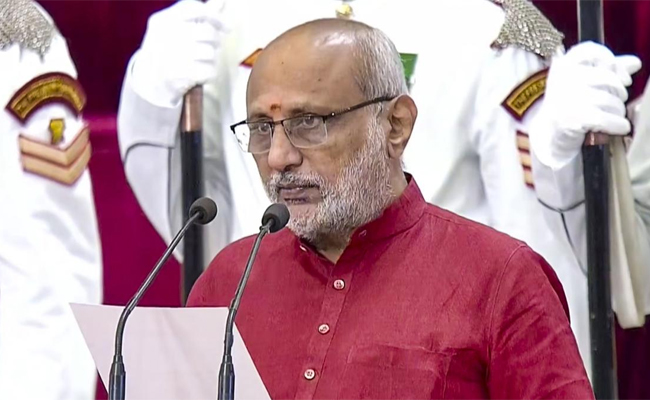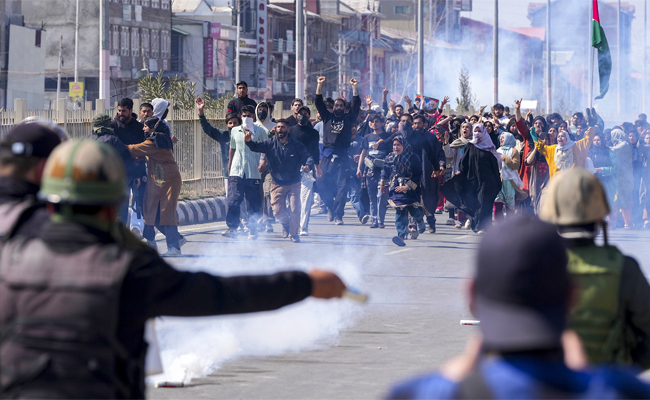Kochi, Dec 8: Olympian Anju Bobby George, who secured a historic bronze medal in the 2003 World Athletics Championship in Paris, on Monday said she achieved success and reached the top with a single kidney.
In a tweet, the ace athlete, a gold medallist in the IAAF World Athletics Finals (Monaco, 2005), said she had many limitations, including being allergic to even a painkiller, but still made it.
"Believe it or not, I'm one of the fortunate, among very few who reached the world top with a single KIDNEY, allergic with even a painkiller, with a dead takeoff leg...Many limitations..still made it.
Can we call, magic of a coach or his talent," Anju tweeted.
Her career blossomed under the coaching of husband Robert Bobby George.
Responding to her tweet, Union Sports Minister Kiren Rijiju said she brought laurels to India through her hard work, grit and determination.
"Anju, it's your hard work, grit and determination to bring laurels for India supported by the dedicated coaches and the whole technical backup team.
We are so proud of you being the only Indian so far to win a medal in the World Athletic Championship!" the minister said in his response to her tweet.
The Athletics Federation of India said as India's only medallist at the IAAF World Championships (Paris, 2003), a gold medallist in the IAAF World Athletics Finals (Monaco, 2005) and a remarkably consistent performer throughout her wonderful career, Anju is among the country's most inspirational track and field stars.
She finished sixth in the 2004 Olympic Games in Athens with a personal best leap of 6.83m but was elevated to fifth place in 2007 when the United States of Americas Marion Jones was disqualified for a doping offence.
"Her gold medal in the Asian Games in Busan in 2002 with a jump of 6.53m was an early indication of things to come the following couple of years.
From a 5.98m jumper in 1996, her rise was encouraging but she stagnated a little before blossoming fully under the coaching of husband Robert Bobby George," the federation said.
Let the Truth be known. If you read VB and like VB, please be a VB Supporter and Help us deliver the Truth to one and all.
Patna (PTI): The entry of Bihar Chief Minister Nitish Kumar's son, Nishant Kumar, into politics has been finalised, and the decision will soon be announced formally by the JD(U), state minister Sharwan Kumar said on Tuesday.
The senior JD(U) leader said Nishant will be given a "bigger responsibility" in the party.
"Now, it's clear, and it has been finalised that Nishant Kumar will join active politics. The party will make a formal announcement in a day or two. Party workers have been demanding Nishant's entry into politics for several years. Now party workers and supporters are upbeat with the decision ahead of Holi," he told PTI.
"He will be given a bigger responsibility in the party. What responsibility he is going to get will be decided in a day or two," said the minister.
ALSO READ: 10 flights cancelled at Kolkata airport amid West Asia conflict
Asked if Nishant can be sent to the Rajya Sabha, Kumar said, "Anything can happen."
Kumar, who has been a minister in the state cabinet for more than a decade, is considered very close to the CM.
Social Welfare Minister Madan Sahni said JD(U) workers have been demanding Nishant Kumar's entry into active politics for several years.
"Now, it has been finalised. We are quite happy with the decision," Sahni, also a JD(U) leader, told PTI.
Rural Works Minister Ashok Choudhary said, "It is a big Holi gift for the party's rank and file and also the people of the state. Nishant's entry into active politics will certainly benefit the party. He is a photocopy of our leader, Nitish Kumar."
JD(U) ally BJP also welcomed Nishant's entry into politics.
"I welcome the new generation to enter politics. I thank the CM for leading the NDA in the recent assembly elections. It is a matter of great happiness that Nishant Kumar will now enter politics with the support of the CM and his family, and we wholeheartedly welcome him," Industries Minister Dilip Jaiswal told PTI Video.
"He is certainly an educated young leader, holding a BTech degree, and is a well-grounded individual. Every event happens in its own time, and perhaps now the right time has arrived. His entry should be warmly welcomed," said the former state BJP president.
Five Rajya Sabha seats from Bihar will go to the polls on March 16. The last date for filing nominations is March 5.
The elections will be held as the tenures of JD(U)'s Harivansh Narayan Singh and Ram Nath Thakur, RJD's Prem Chand Gupta and Amarendra Dhari Singh, and RLM's Upendra Kushwaha are ending.
As per the latest tally in the state legislature, all five seats would now go to the ruling NDA. However, the RJD has decided to field its candidates to ensure the election is not decided unopposed.





